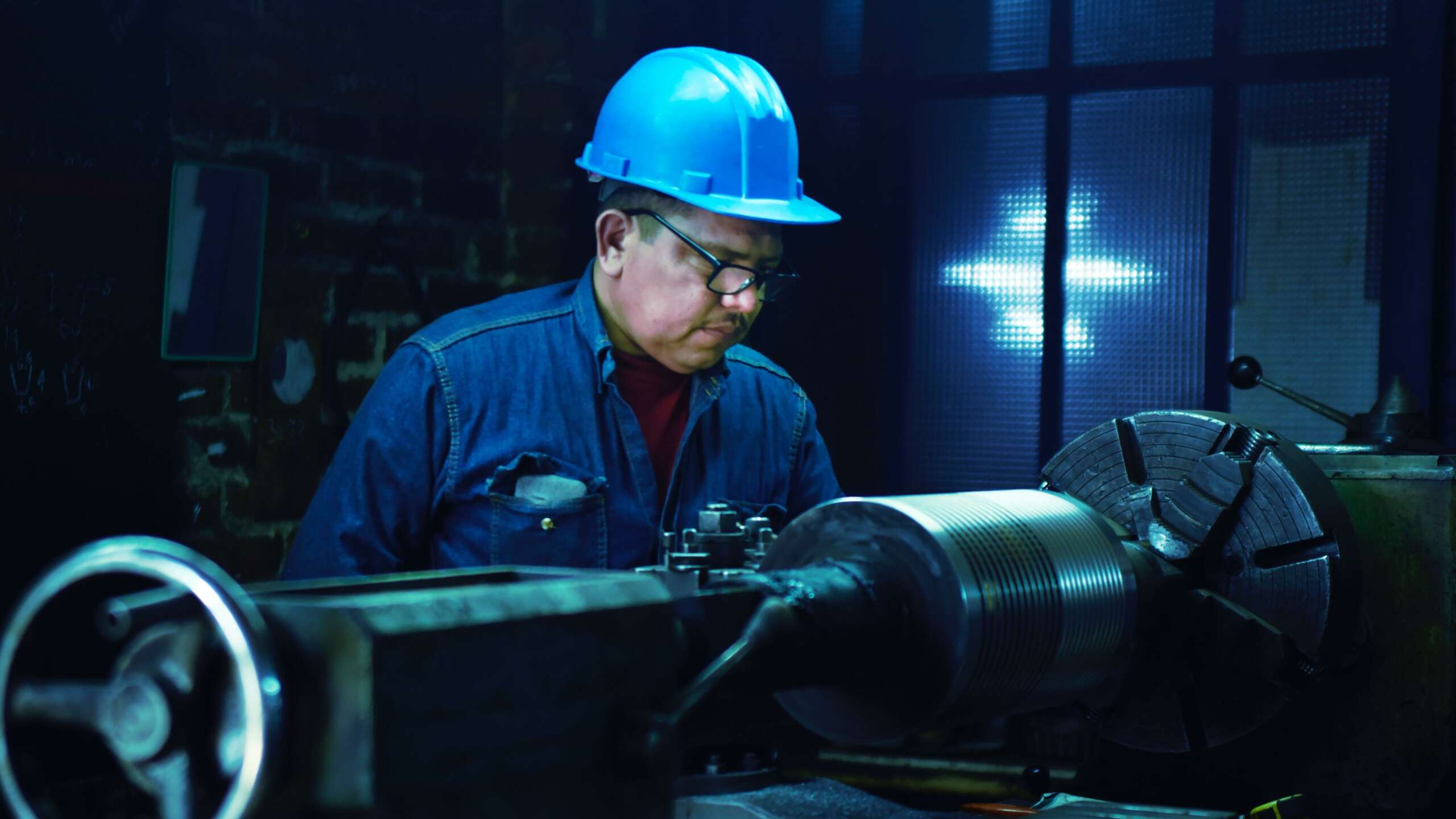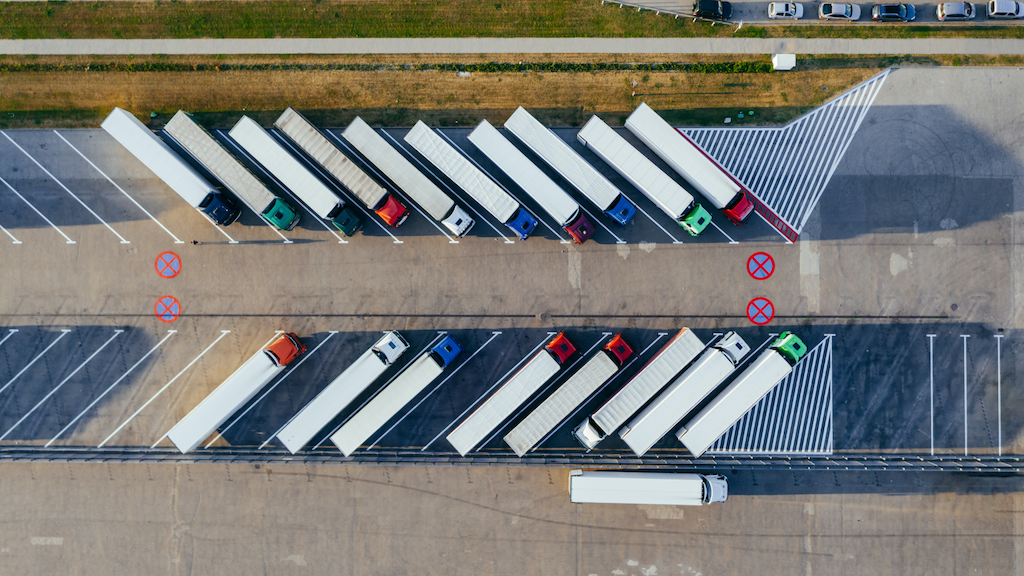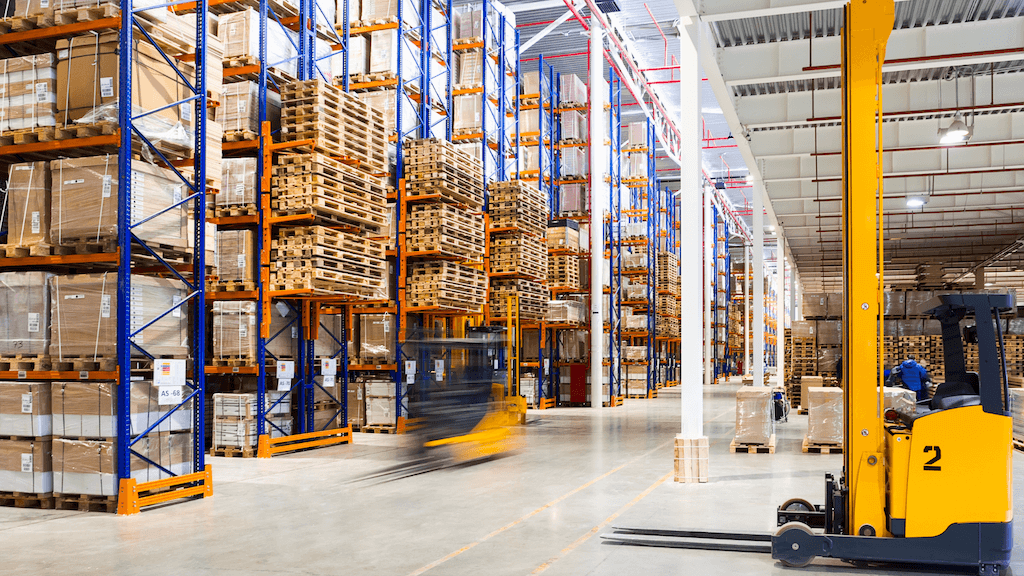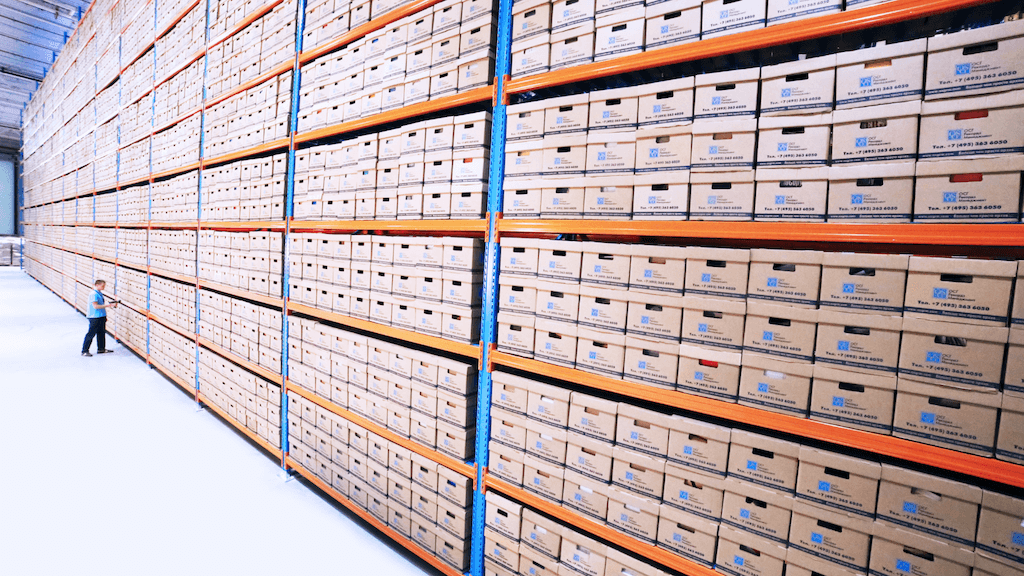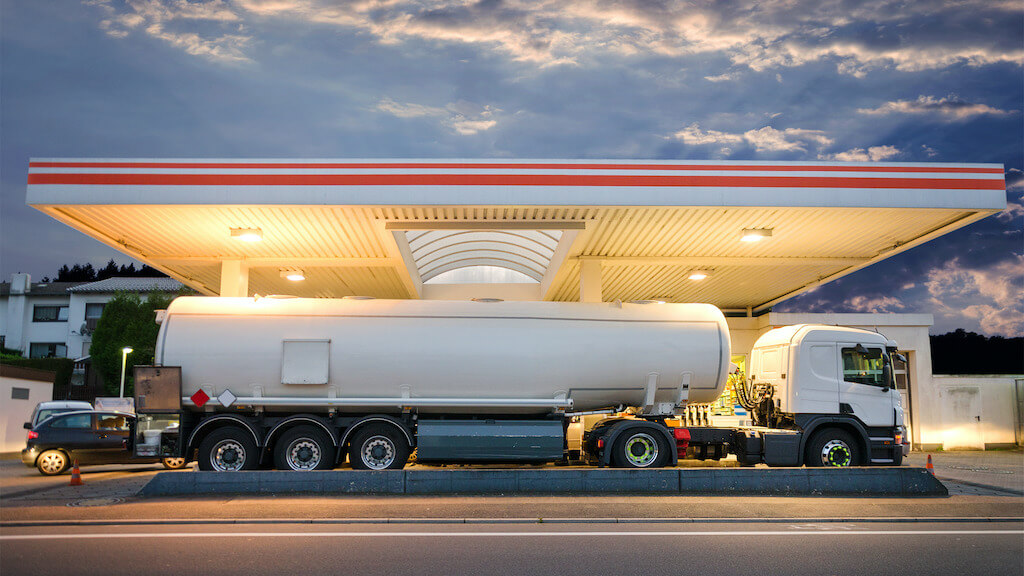Category: Logistics and Transportation Spotlights
The manufacturing industry is growing rapidly. The industry market size measured by revenue reached $ 5.6 trillion in 2021 and is expected to grow further by 5.9%.
One of the reasons for such expansion is the use of robotics and artificial intelligence that has already caused the change to be called the next industrial revolution.
As we know, Artificial Intelligence uses data and computers to perform tasks that would normally require human intelligence and participation. But how exactly can the manufacturing industry benefit from such technology?
Predictive maintenance
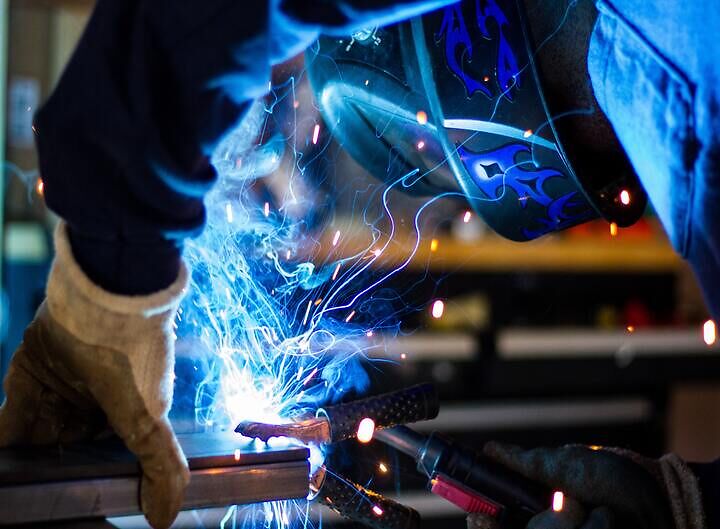

Modern warehouses are equipped with various sensors that record data from different pieces of equipment and operations. This type of real-time and historical data is what predictive maintenance solutions use to track and predict the health, condition and performance of assets.
By taking into consideration details such as temperature, machine operating speed, lubrication, etc., predictive maintenance provides warnings and alerts about possible future machine failures.
With the help of similar solutions, warehouses can have constant analysis and can access benefits such as:
- Improved equipment uptime by 20% percent;
- Reduced maintenance costs by 18 to 25%;
- Increased productivity due to minimized likelihood of unscheduled equipment downtime.
Intelligent Process Automation (IPA)
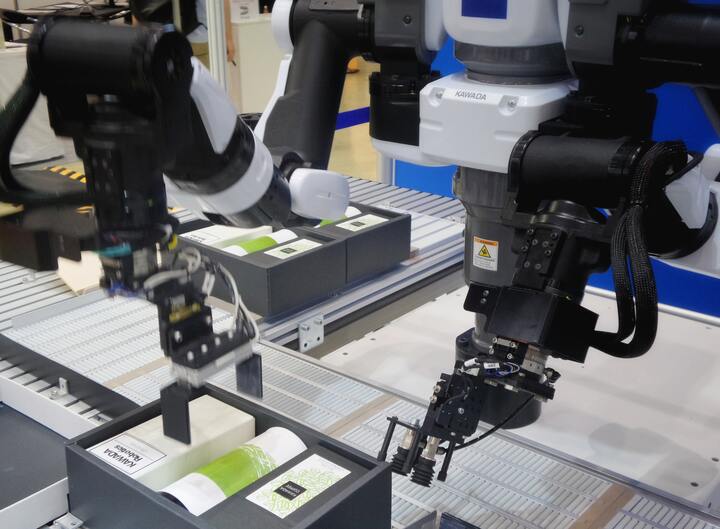

One of the most important applications of automation is manufacturing. However, this process became even more important when combined with artificial intelligence. The fusion of automation and AI is known as Intelligent Process Automation (IPA).
What makes it so different from standard robotic automation? It is the ability of AI systems to find patterns in data, learn from data sets, and perform environment-based tasks without the need for human involvement.
For manufacturers, this means:
- 24/7 production;
- Increased accuracy;
- Decreased operational costs;
- Better scalability.
Quality assurance
The production and guarantee of high-quality products are vital for manufacturers and for a positive image of their brands. To that end, quality assurance procedures are implemented to ensure that the final product meets the desired quality criteria.
Because AI use cases are so versatile, manufacturers have started using it to improve their QA operations. The reason for this is that manufacturers achieve quality inspections faster, with higher accuracy and at lower costs with the help of AI.
Manufacturers can teach AI systems what kind of product features are considered acceptable (curves, colors, edges, etc.). Subsequently, with the help of computer vision technology, the machines inspect each product and independently decide whether the product meets the predefined criteria.
Generative design
Not only can AI systems help with the manufacturing process, but they can also be helpful during the product design process. Designers can tell the artificial intelligence system the goals of product design, smart algorithms can then test all possible variations with regards to existing manufacturing constraints and ultimately find the most optimal solution. This helps companies develop and find design solutions that would never cross the human mind.
Logistics optimization
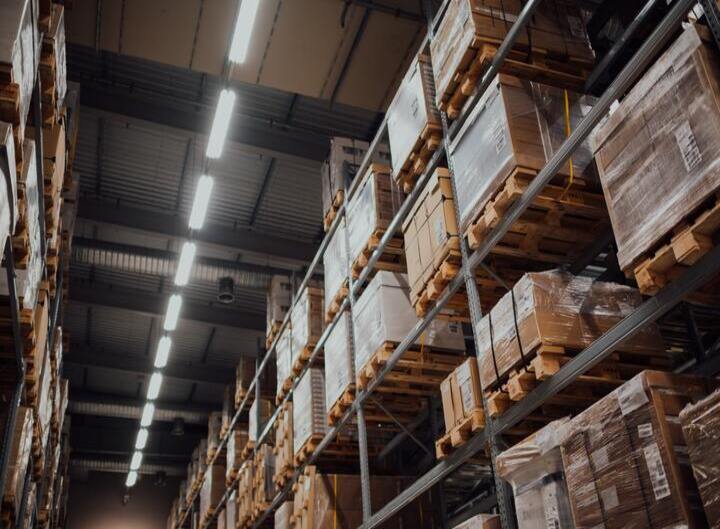

For manufacturers, the optimal space allocation within the warehouse is just as important as the other things mentioned above. Since artificial intelligence systems can capture patterns and data from manufacturers, they can suggest the layout management by taking into account the capacity of the space, identify the most used materials and products and give recommendations on how and where to place them, as well as suggest the suitable staff quantity for smooth operation.
Conclusion
With the increase in the use of smart devices and sensors, the manufacturing sector is collecting a significant amount of data and it is a perfect use case for the application of AI.
Using big data, artificial intelligence systems can identify trends and patterns that then help manufacturers with process optimization, inventory control, maintenance predictions, and many more.
Despite the many benefits of AI, Industry 4.0 is still in its early stages and we have yet to see many more innovative applications of AI in the manufacturing sector.
Do you want to boost your projects with innovative AI solutions? Contact our team for a free consultation and we will make sure to get back to you as soon as possible.
The logistics industry is concerned with managing the acquisition, storage and delivery of resources to their final destination. Such a system has existed since ancient times, since the movement of products and services has always been in demand.
Although the industry has evolved and become more efficient in delivering products and services, the recent pandemic and the growing power of consumers demonstrated that there is still a need for innovative solutions in logistics.
Some of the common challenges in the logistics industry are:
- Reducing transportation costs
- Improving customer service
- Theft
- Sustainability
What if there was a single solution that could help companies overcome these challenges? The truth is that Artificial Intelligence is a perfect complement for the logistics industry not only to overcome challenges but also to improve and boost its operations.
Due to the amount of data that is generated at each stage of the supply chain process, such as from product production to shipment to sale, AI can serve as a powerful tool for the industry.
Let’s find out what are the main use cases for AI in logistics and how important it is for the industry.
Demand forecasting


We know that when it comes to production, resources are limited. That is why it is important to predict the exact demand for your product.
Demand forecasting helps companies to have a clear expectation and, based on that expectation, establish adequate stock levels and price the product correctly.
With the help of machine learning (ML) and AI, companies can analyze a large amount of information related to historical sales data, customer data and at the same time process other types of data in real-time, such as current discounts, trends and changes in income.
Machine learning algorithms increase the accuracy of demand forecasts by finding complex, non-linear relationships in huge data sets that no human could process in such a short time.
The implementation of AI solutions for demand prediction significantly reduces the risks of:
- Lost sales
- Product spoilage
- Extra operational and personnel cost
- Excess/shortage of stocks
Warehouse Automation
Intelligent automation and robotics are one of the most valuable features that AI offers to the logistics industry.
Artificial intelligence systems free warehouse personnel from repetitive and perhaps dangerous tasks by automating the process and providing greater speed and precision.
Smart warehouses using artificial intelligence automation are more productive and can operate 24/7, which would be very expensive and hardly possible in the case of only human labor.
For example, since Amazon automated most of its warehouse operations, its team doesn’t have to go through the tedious and boring task of moving a cart full of products, placing them on shelves, and scanning them to mark their location in a system.
Now all these tasks are handled by intelligent robots that perform the job faster and with greater precision, eliminating human error.
AI + IoT sensors
With the help of AI and IoT sensors, companies get a bird’s-eye view of all their operations.
IoT sensors can track the shipment status of each product, the condition of equipment and machinery, the temperature of facilities, and many other details that help managers understand the efficiency and state of their supply chain operations.
AI technologies, on the other hand, use IoT data, analyze it, and provide tips and advice.
For example, by acquiring data from IoT sensors about equipment load and weather conditions, AI systems can estimate when maintenance will be required to avoid machinery downtime.
AI route optimization


Fast and cost-effective delivery is very important in logistics because if managed incorrectly, it can cause unnecessary expenses.
AI can analyze all related data affecting freight transport and based on this data find the best possible route for fast delivery in real-time, such as weather conditions, traffic congestion, vehicle speed limit, etc.
Based on this data, artificial intelligence systems can find the best possible route for the fastest delivery in real-time.
Shorter routes are a more environmentally friendly approach, as they reduce vehicle emissions and prevent cars from releasing harmful particles.
AI theft prevention
Another way that AI can ensure that logistics operations run smoothly is by ensuring security.
By having access to data such as:
- The hotspots where thefts occur
- The types of goods that are stolen the most
- The period of the day when the crime occurs most frequently
- Thousands of hours of real and simulated images of the theft
Machine learning algorithms can analyze all information and warn companies of theft risks, provide real-time alerts, and suggest safer alternative routes.
AI-powered security alerts have become critical for logistics companies as cargo theft continues to be a huge problem affecting both consumers and businesses.
Customer service


Just as in any industry, customer satisfaction is a priority, the logistics sector is no exception. The elements of customer service in logistics include order fulfillment, fast delivery, quality products, etc.
In the previous points, we saw how AI solves some of these elements; However, another way that AI improves customer service is with smart chatbots and personalization.
Chatbots are available 24 hours a day, 7 days a week, which means that customers will not have to adjust to the standard business hours of the company and can send their inquiry whenever they want.
With the help of such automated systems, customers can quickly get assistance on delivery requests or information on the shipping status of their packages.
Accelerating responses and assistance to customer requests is a great way how artificial intelligence helps the logistics industry improve its customer service.
Conclusion
As AI is becoming more popular in logistics, more and more companies in the industry will implement the technology in their day-to-day operations. in fact, the market size for AI in the logistics and supply chain is expected to reach $ 12 billion by 2027.
Increased adoption of AI in logistics means we could see some innovative and groundbreaking AI use cases.
If you find the above-mentioned use cases interesting for your business and would like to understand how AI can benefit your specific use case, schedule a free consultation call with our experts and let’s discuss the topic in more detail.
MaxinAI’s solution helps warehouses in product allocation and space optimization, requiring the lowest costs and producing the highest efficiency.
Goal
Our client, a California-based company that provides consulting services to warehouses wanted to give its customers recommendations on warehouse logistics that would lower costs and increase productivity and efficiency.
When we think of a warehouse, we think of simple operations such as moving goods from one place to another. However, warehouse managers know the real struggle associated with efficient space management.
Inefficient space management can lead to excessive travel distances for employees, stock-outs and lost sales, and longer fulfillment times. That’s why effective space allocation and inventory management are some of the most challenging tasks that managers still tackle with difficulty.
Some of the difficulties related to warehouse management include:
- Poor space/layout management practices
Problems such as not knowing the exact capacity of the space or not being able to correctly analyze the specificity of the design can be detrimental to the warehouse and hinder the growth of a company.
- Excess stock
When the company does not sell the goods in a timely manner or when there is more product than the demand, the goods tend to accumulate and become an expense for the company and are associated with lost revenue due to additional capital tied to occupied storage space.
- Product misallocation
Placing the best-selling goods in the back while the least-selling ones are in the front or unnecessary product handling becomes an additional and unnecessary operation that can add considerable cost to a business. Even a small optimization in this operation produces significant results in terms of reducing costs and maximizing efficiency.
- Lack of human capital
Due to the lack of information on warehouse operations, sometimes the human resources employed are not enough, causing process delays and slowing down warehouse efficiency.
One solution to rule them all


The challenges mentioned above can be difficult to tackle at times and the consequences are often damaging. But what if we told you that there may be a single solution that not only solves all the problems mentioned above, but also improves the overall performance of the warehouse?
As smart AI solutions have penetrated almost every sector, logistics is no exception. Innovative tools are constantly being introduced to help managers better handle the warehouse and its activities.
The truth is that warehouses already have the necessary data that is useful for the optimization of processes and, in addition, their improvement. However, what they lack are the tools that can make sense of all this data and give concrete suggestions for improvement.
Exactly based on the data, we provided a program that uses optimization methods and obtains information about the warehouse installation (space allocation, product dimensions), sales history, customer order behavior, etc.
Subsequently, it recognizes patterns and regularities from the aforementioned information which is then used to inform decisions and give suggestions on how to improve warehouse operations, such as product allocation and space optimization that requires the lowest cost and provides the highest efficiency.


Now, thanks to our solution, managers have access to suggestions such as shorter walking routes for better timely service or better inventory positioning based on product popularity. So for example, based on years of sales data of different products, our smart solution ranks product popularity and recommends the end-user to place the highest ranked product in front of the warehouse so less time and energy are wasted in loading and moving the product.
Transforming warehouse management
The implementation of AI and intelligent solutions in warehouse management has become even more important in today’s environment when customer satisfaction and competitive advantage have become core factors for the success of the company.
Warehouse management acts as a bridge between the supplier and the customer; therefore, streamlined warehouse operations mean improved supply chain management and happier customers.
Do you have a project in mind? You could be our next success story! Get in touch with our experts to discuss your project potential and get a free pilot project from us.
Online stores have become so widespread that there is a high probability that many of us are currently waiting for the delivery of an order.
For us, it may be just a click to receive the product, but behind this is a complicated supply chain that ensures the process is seamless and that you receive your products in a timely manner.
An important part of these operations is the shipment itself, however, there is a danger that has been posing a threat to this smooth process and that is cargo theft.
Cargo is a term that is used for products and goods transported by ship, plane, or motor vehicle and its fast and safe movement is essential to satisfy the customers waiting for their goods.
However, while goods go through different stages of the supply chain, there are some groups or individuals who employ many strategies to steal the products before they reach their destination. This is one of the most serious problems for companies, as cargo theft is estimated to cost around $ 15 to $ 30 billion for U.S. businesses each year.
Due to this disturbance, many companies began looking for solutions that would help them avoid cargo theft. But despite great efforts, thieves have been adapting and still come up with a way to successfully steal the goods as research showed that the stealing rate went from 17% to 26% in just one year.
Although the very recent innovative solution against cargo theft, the AI-powered security system, has been giving thieves a real challenge that still remains victorious against criminals.
Preventing theft with AI security system


As the role of AI in the cybersecurity industry increased due to its ability to cross-reference different alerts and find genuine data-driven issues, many companies realized that it would also serve as a perfect answer to physical thefts.
So how can artificial intelligence help prevent physical theft? Well, the one thing we have to remember is that the core of AI is data.
Regardless of the industry, the goal of AI solution, or its application methods, most of its techniques are based on having a large amount of data that is a basis for the algorithms to be trained and form models that can operate independently with the data provided.
The same technology is applied to preventing cargo theft. With the unfortunate accumulated data from:
- The hotspots where thefts occurred
- The types of goods that are stolen the most
- The period of the day when the crime occurs the most
- Thousands of hours of real and simulated footage of the theft
And by combining all of this with intelligent deep learning algorithms, you get a system that can inform you of the potential risk and give you a suggestion on the alternative route or transport time to minimize the likelihood of theft.
To maximize safety, trailers can be equipped with security cameras and GPS tracking devices. Security cameras don’t need a person behind the screen to constantly monitor goods. Instead, they are powered by AI and can recognize every threatening or questionable action that alerts human operators to verify the legitimacy of the alert.
Trained artificial intelligence algorithms do a better job of surveillance compared to humans, as it is very difficult for a person to be constantly staring at the screen without interruptions, leaving holes for criminals to use and steal exactly at this moment.
But with AI, the security system is always vigilant and acts as a 24-hour guard that can see everything and alert you of any abnormalities or shady actions.
Therefore, the system offers more effectiveness and is less expensive in the long term, since there will be no need for different security personnel shifts.
Cargo safety – priority number one
Staying one step ahead of thieves will not only prevent companies from losing money on goods but will also help them maintain a positive relationship with the customer by delivering timely and secure orders, which can be even more valuable than the cost of goods themselves.
Was this solution useful and interesting? We have many more real-time examples of how artificial intelligence has helped our clients grow. Click on our case study!
The food we buy at the supermarket, the internet service we receive from the supplier, the clothes we purchase at a shopping mall – are all end results of a supply chain.
The purchase of these products and services may seem normal to us, however, behind all these there is a complicated process that is responsible for ensuring a successful and efficient delivery of these products and services to end customers.
Since the 20th century, when the term “Supply Chain Management” appeared, until now, companies and businesses have been investing a lot of resources to improve the supply chain process and make it as efficient as possible.
With advances in technology such as automation, companies began to understand that using the right tools can greatly streamline the supply chain. Since automation, businesses have constantly been looking for innovative solutions.
Without a doubt, Artificial Intelligence (AI) has been one of the biggest innovations that supply chain managers have been paying close attention to. According to Gartner, AI is one of the most trending technologies for improving supply chain performance.
But how exactly can Artificial Intelligence improve your supply chain?
What is a supply chain and how can AI improve it?
The process of manufacturing and selling goods and services is known as the supply chain. This process begins from the first stages such as the collection and supply of the resources and continues until the last stage, which is the sale.
Managing this process is extremely important, as it is not only directly related to customer satisfaction, but can also be a decisive factor in reducing the cost of production.
The main goal of including AI in the supply chain process is to create a system that makes intelligent human decisions and analyses without human interference.
Implementing AI into the supply chain enables you to save time and money during each stage of production. It also optimizes processes that have already been implemented in your business model. In other words, it creates a win-win situation.
In addition to helping businesses reduce costs, AI can be used for high-performance human resources management systems because it facilitates the monitoring of conditions and personnel.
Inventory management


For example, to avoid overstocking or understocking, companies like Amazon use AI and ensure proper inventory management. This is not an easy task and requires a lot of man-hours. However, with AI the process is much quicker and more effective.
With all the historical data about the sale of your product in particular months, the artificial intelligence system can forecast and tell you what is the expected quantity of goods that you need to have. This will ensure that the supply of your product matches the market demand.
Warehouse management
Now that you have the exact amount of product, where else can AI be useful? One of the biggest uses of the system is warehouse management.
By analyzing the data about the most demanded products, warehouse space capacity, product size, etc., the Artificial Intelligence system can provide the best suggestion on product allocation and warehouse management.
Quick Delivery


The delivery of products is equally important in the supply chain process. Here as well, AI helps businesses save money.
AI-powered algorithms can inform managers about road conditions with respect to forecasted details such as weather, congestion, and traffic accidents. These details can be used to find the fastest road which ultimately saves time and also requires the least amount of fuel.
Conclusion
Artificial intelligence has the ability to completely transform the supply chain and make it as efficient as possible. With benefits like complete automation, demand forecasting, operation optimization, and delivery time prediction, companies can take their service to the next level.
With all that said, it’s no wonder that around 72% of the 1,001 supply chain professionals surveyed have said they use AI in their operations or plan to do so in the next 5 years.
It is very important to keep up with innovation and gain a competitive advantage over other players in your industry. So why not schedule a free call with our AI consultants so we can see together how MaxinAI can be of great help to you.
Can you guess one of the greatest wishes that residents of urban areas have?
It is to spend as little time as possible commuting. In fact, some people consider it so important that a well-organized transportation system plays a decisive role in planning relocation.
As commute durations increase across the world, it is even more important to find smart solutions for increasing the capacity of transport infrastructures.
Residents of Singapore, London, and Hong Kong got lucky as these are the cities with one of the best means of public transport, but sadly not many cities around the world can claim the same status.
With greater concern for the environment, more and more cities began to invest in the optimization of transport systems and with the unexpected appearance of the pandemic, this priority became even more important.
How exactly is COVID-19 connected with a need for a better transport system? Well, the pandemic posed a new challenge for municipal administrations since the key objective at this time became to avoid overcrowding, both within public transport and outside at bus stations.
Therefore, to create an efficient transport system that is also safe and secure, many started exploring smarter solutions.
AI removing the overcrowding factor


Yes, when we hear artificial intelligence and transportation, the first thing we have in mind is autonomous vehicles, but there are many other fields in which AI comes in handy for mass transit.
AI is a technology that, in combination with data and algorithms, can achieve human-like performance. It has been implemented in different processes with different intentions, however, one of its most-used benefits is predicting certain results based on historical data. And this is exactly how passenger flow can be optimized.
Matching public transport schedules with passenger demand is key to eliminating the crowding factor. While the concept may seem simple, in practice it is complicated and in the case of a large city, it becomes even more complex.
However, cities started taking advantage of transportation data for overcoming this challenge. Cameras installed at public transport stops, as well as within public transports, provide real-time information on the number of passengers.
The big picture comes into play when this collected data is enriched with other factors such as:
- Area-specific speed limits
- Number of bus stops
- Amount of road lanes
- Weather conditions
- Time of the day
- Period of the week
Combining all this information and processing it with AI software offers the best way to manage transportation, with suggestions for adding public transport stops and adding vehicles for each specific public transport lane.


Such a solution is important with unforeseen sudden changes such as pandemics, as it can quickly realign routes with respect to new restrictions that would produce the best possible scenario to optimize safe passenger movement. This could mean offering an additional vehicle (bus, train, tram, etc.) for increased social distancing.
Keep in mind that placing an extra bus affects the entire transportation system as a whole and requires a complete adjustment that takes considerable time if done by humans.
However, with artificial intelligence, the readjustment process is quick which can then be analyzed by human operators for accuracy, saving time, and increasing efficiency.
A smarter transportation system
Most of the cities already have access to the data mentioned above, the missing piece is an artificial intelligence system that can take full advantage of this data and deliver real, actionable suggestions. The system also makes it possible to monitor the positive impact of change in cities in real-time.
AI is an important tool for optimizing passenger transport flow because it can be used to predict what will happen based on historical data.
The topic we discussed above is not a sci-fi movie script. Artificial intelligence is already improving operations in many industries. If you want to see its real-life applications and how it helps businesses, make sure to check out our case studies.
Electric cars are becoming increasingly popular, and while one of the reasons is due to the growing interest in being environmentally friendly, an equally important part is fuel efficiency improvement.
Fuel consumption concerns every driver; However, for companies that specialize in the transportation field, it can be of crucial importance.
Conditions such as poor infrastructure, traffic flow interruptions, increased numbers of vehicles, construction zones, weather conditions, rapid acceleration and deceleration can cause inefficiencies in the fuel consumption of vehicles.
This poses a serious problem for the transportation service companies, as it can result in unnecessary monetary loss for them.
AI has managed to penetrate the transportation industry and is used for different purposes such as autonomous driving and pedestrian safety, however, companies also started to implement this solution to handle the fuel efficiency challenge.
AI in transportation
The role of AI in the industry has been so prominent that experts predict it will reach $ 3.5 billion by 2023.
The reason AI is so valuable to the industry is thanks to the large amount of data that has been accumulated throughout the years with the help of cameras and sensors installed on the roads and within the cars.
This data is processed and then analyzed with artificial intelligence systems that help reveal specific patterns and insights that help drivers or passengers make smarter decisions while driving.
Efficient fuel consumption is based on exactly the same process. With the help of smart sensors installed in the vehicles, artificial intelligence provides drivers and company managers with information about average driving speed, unnecessary accelerations, and sharp slowdowns – all things that had an effect on overall fuel consumption.
The above-mentioned enriched with environmental data on road conditions, weather forecast, population density, number of traffic lights, crash hotspots, etc., helps AI systems to provide better suggestions that help save fuel based on shorter routes, fewer traffic jams, and a lower probability of accidents.
AI-based suggestions help with:


Shorter routes mean reduced emissions from vehicles, therefore fewer harmful particles are released from automobiles. In today’s world, environmentally friendly business operations can be the primary driver of customer decisions regarding which company to choose for needed services.
Last but not least, travel time is also reduced. This is important regardless of the nature of the business. If it is cargo delivery, customers receive the goods faster, if it is public transport, passengers arrive faster at their destination. The results in all cases are positive.
Choose the right way


Big data and artificial intelligence are the main driving forces in many industries and have been very important in the transportation sector.
Many agree that there is no excuse not to take advantage of all the benefits that this innovative solution offers for your business.
This is especially true for fuel efficiency, as a single AI solution provides many benefits that are absolutely important to a business: less fuel consumption, faster travel time, and less pollution.
With these points, you not only reduce your costs but also win the hearts of your customers.
To achieve these amazing results, you need to partner with a reliable and experienced company that has the capacity to provide the necessary tools required for implementing AI.
MaxinAI is more than happy to assist you on this journey. If you have an AI-related project in mind, be sure to contact our specialists and take advantage of the free consultation we offer.




